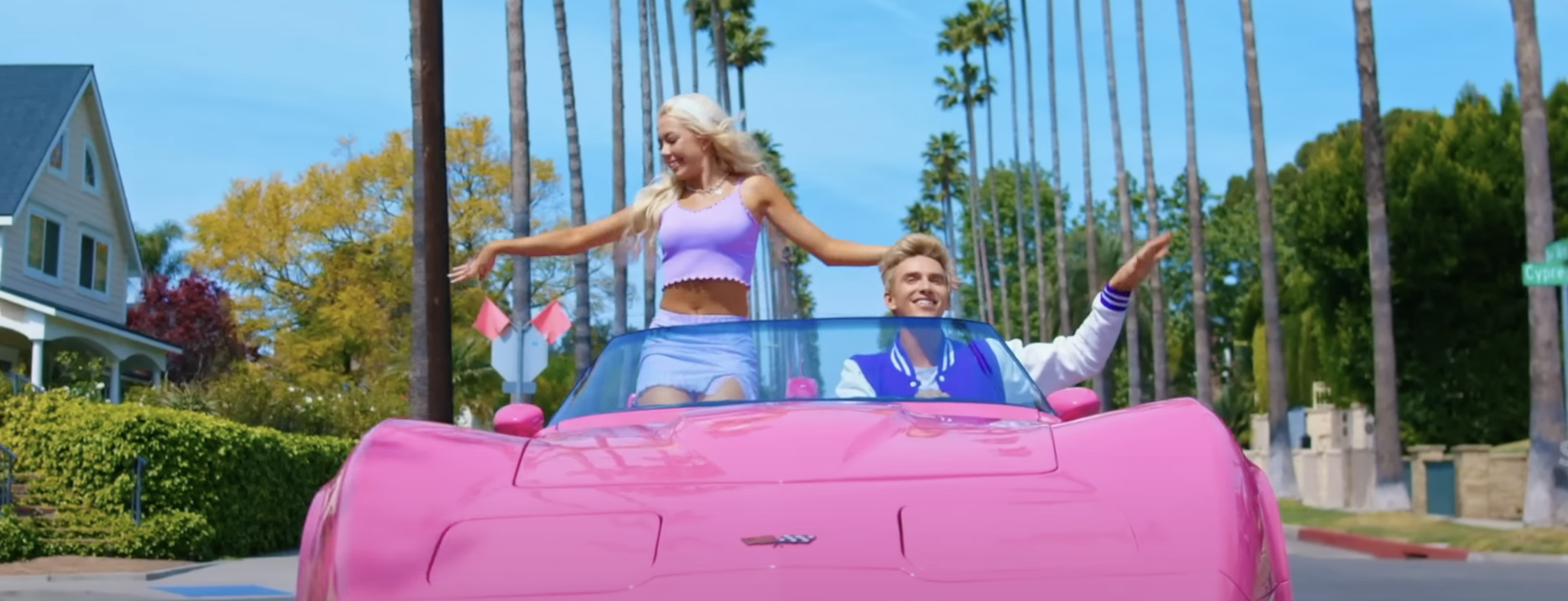Quite honestly, I never thought I’d find myself engaging in commentary about a live action adaptation of Barbie, much less one that is written and directed by Gretta Gerwig, along with her creative and romantic partner, indie darling Noah Baumbach, who also co-wrote the screenplay. These aren’t some Michael Bay types who throw in an explosion or a beach sequence with scantily clad actors when all else fails, either. They are Oscar-nominated auteurs who have nary a bad beat in their respective filmographies. It is as comforting as it is unexpected for the likes of Gerwig and Baumbach to be involved in this long-gestating Barbie production, yet it also raises one burning question: what have the rest of us been missing?
It’s a natural question to ask given that filmmakers of this calibre are working on an intellectual property that is, frankly, as problematic as Barbie. The Barbie doll is arguably the most famous children’s doll ever, yet it projects a narrow sense of “beauty” that is quite literally impossible to attain naturally, particularly around the waist. This has led to many women seeking the “Barbie look” by undergoing extensive cosmetic surgeries to look more doll than human. What’s more, in this day and age where we understand gender to be much more fluid, Barbie’s worldview is wholly black and white, where there are men and there are women and they each perform specific roles based on their sex.
Yet it is these very issues that make Gerwig’s adaptation so damn promising. The feminist ideals seen in Gerwig’s previous directorial efforts make her the perfect filmmaker to totally deconstruct the most problematic aspects of Barbie, potentially satirise them and then reframe them in a far more positive, constructive manner.
Take Barbie’s concept of beauty, to begin with. Stills of Margot Robbie’s Barbie and Ryan Gosling’s Ken released a number of weeks ago, with the latter in particular almost breaking the internet. They emphasise Gerwig’s embrace of Barbie’s vibrant colour in addition to the eclectic fashion sense, while it is also apparent that she is tackling the concept of beauty head-on by framing it in such an excessive and unrealistic manner. And if anything, it’s Gosling’s Ken who is hypersexualised in his still, while Robbie’s Barbie is portrayed in a much more modest, innocent manner, which is a welcome reversal of Hollywood norms. Add to that the fact that Issa Rae and Simu Liu will be playing black and Asian versions of Barbie and Ken respectively, and it is quite telling that Gerwig is actively avoiding the pigeon-holing of beauty through a white-washed lens.
Regarding the topic of gender, then, it’s tough to gauge thus far, but it does seem that Gerwig is opting for a wisely deconstructive approach. The aforementioned sexualisation of Gosling over Robbie is one hint at this, but it is also worth noting that Gerwig has hired transgender actress and model Hari Nef as yet another version of Barbie. This importantly signals Gerwig’s acute awareness of Barbie’s inherently problematic gender politics, and this casting choice alone should put many at ease.
While we only know enough about the movie to speculate on how Gerwig and Baumbach are otherwise approaching the plot, oddly enough the one film I keep coming back to is The Lego Movie, which might seem like an odd comparison to make on the surface, especially given that it’s an animated film, but bear with me.
For starters, The Lego Movie is an adaptation of another famous toy property, and although Lego is by no means as problematic as Barbie, the film had a refreshing angle that stayed true to the property while also getting to the heart of what makes Lego so special to millions of people worldwide. This was achieved in no small part by revealing that the whole film is actually a kid playing with his Lego, although it is also strongly suggested that the Lego characters are in some way alive in their own way given their interactions with the real world. Whatever the case, Gerwig and Baumbach may be doing the exact same thing here, and funnily enough Will Ferrell may be proof of this.
Ferrell actually voiced the villain in The Lego Movie, but he was eventually revealed to be the father of the child playing with the Lego, portraying him in the live action sequence of the film also. In Barbie, he is rumoured to be playing the CEO of Mattel. This type of meta role could mean that Margot Robbie’s Barbie is an actual doll that is being played with and what we see is a live action realisation of that, not unlike The Lego Movie, animation aside. Of course, details are scant, and I can only speculate, but it does seem like a clever way of approaching the material, much like every other aspect of the production we know of thus far.
As acknowledged in my opening paragraph, I never thought I would be discussing a Barbie adaptation from such an artistic standpoint, yet here we are, and for good reason too. Gretta Gerwig and Noah Baumbach are onto something here, and they may even achieve the difficult task of readjusting our concepts of beauty and gender through the lens of Barbie, of all things, and I for one am eager to see how they go about it.
Barbie is slated for release on July 23rd, 2023.

